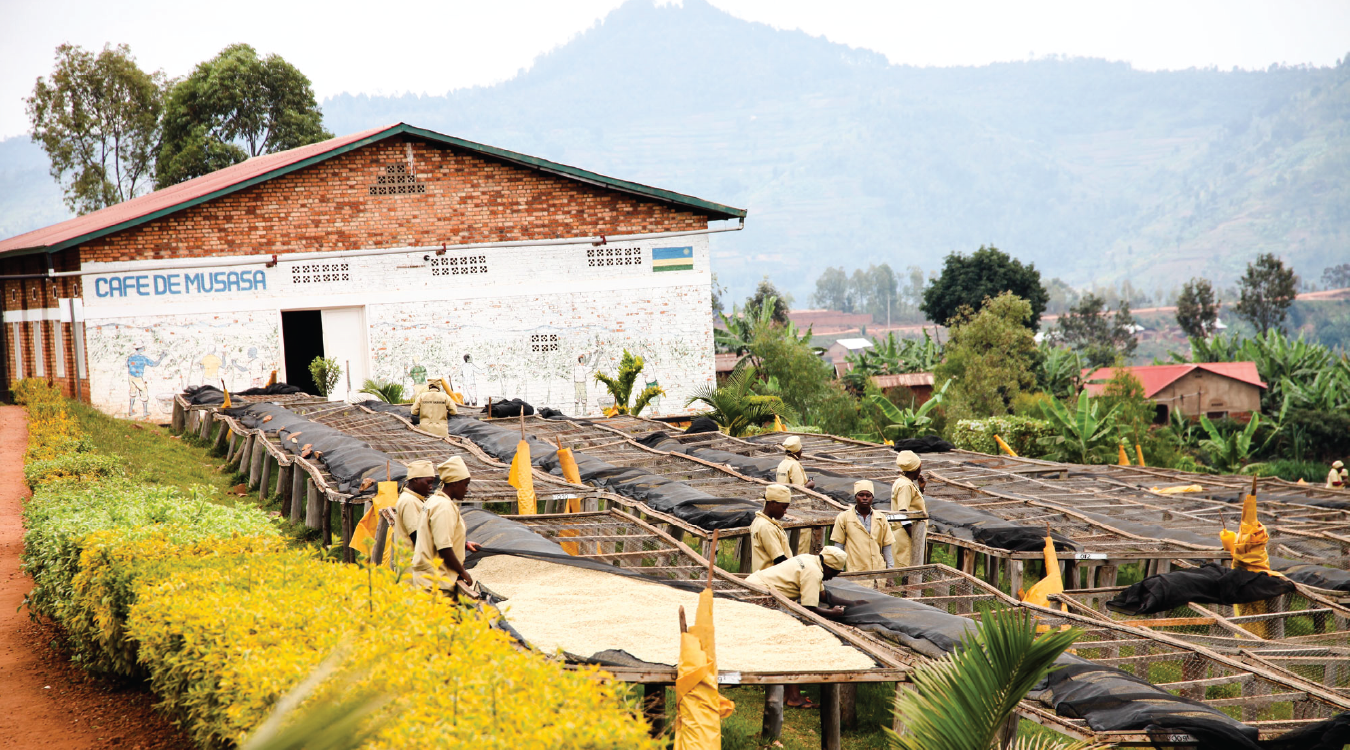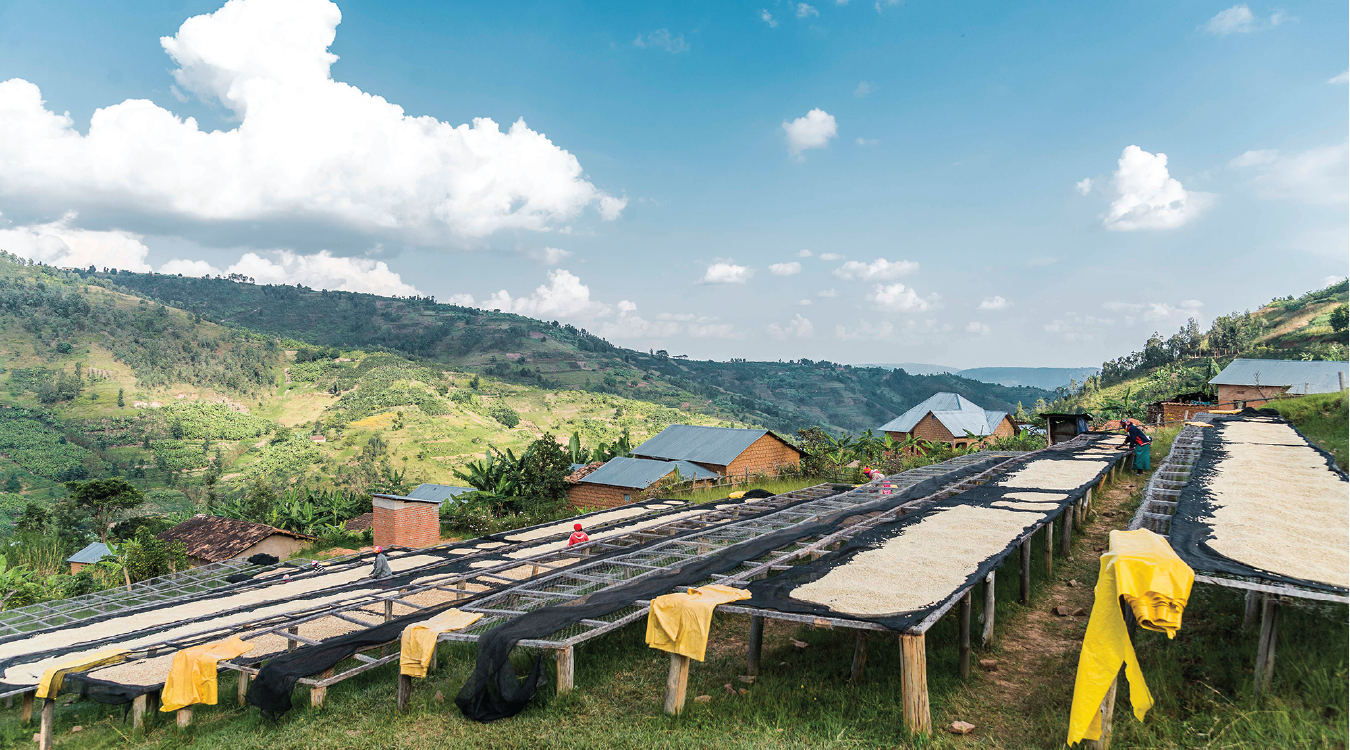
Sustainable Coffee: It's more than compostable packaging
Coffee is one of the most widely consumed beverages in the world - so many of us start our day with a cup, and frankly, I wouldn’t want to guess how many cups I have in a day.
Coffee brings in considerable revenue for the coffee industry too. It’s a huge part of our world here in Melbourne. However, the coffee industry brings with it various environmental and social concerns too. The long-term supply and availability of specialty coffee is in danger because of the climate crisis, which means if certain things don’t change, coffee might be harder to come by in the future. Scary stuff, I know!

TRUE SUSTAINABILITY: NOT JUST A KEEP CUP
Sustainable coffee is about much more than using a reusable coffee cup, the environmental impacts of a plastic coffee bag, what material your coffee pods are made from, or even whether it’s fair-trade or organic! Those things are important. However, sustainability in the coffee industry goes far beyond that, to incorporate agricultural sustainability, financial sustainability, and the social factors that sometimes inhibit coffee farmers from running a thriving business.

Agricultural sustainability focuses on ensuring the long-term productivity of coffee farms, and investing in the research and development of new and biodiverse coffee varietals. This is a crucial aspect of sustainable coffee, however, it’s an undertaking that requires coffee farmers to have the resources and time to invest in this. If coffee is bought so cheaply (to maintain that $4 latte we’re used to!) the time and financial pressures on coffee producers are too great.
WORLD COFFEE RESEARCH
As a sustainable coffee brand, we partner with World Coffee Research, an international coffee organisation who exists to ensure the long-term supply of specialty coffee, and improve the livelihoods of the coffee farmers who grow it. We love the work that organisations such as WCR are doing in ensuring that coffee farming is an industry which can grow and improve.
SUSTAINABLE GROWERS
We also work alongside some really environmentally minded coffee producers, such as Pedro Gabarra Teixera. His farm, Santo Antonio, is a beautiful example of how producers can take advantage of technology and modern techniques whilst also preserving the environment and the cultural history of the land. Besides maintaining 20% of the surrounding environment as a legal reserve, another 28% is undergoing reforestation, totalling nearly 50% of natural forest around the farms.
FINANCIAL SUSTAINABILITY
Beyond the impacts of climate change on the coffee industry, financial sustainability is also incredibly vital to ensuring the long-term supply of coffee. Just like anyone else, coffee producers need to generate enough income to meet their needs. But they also need the financial ability to invest in infrastructure that betters their businesses and farms, and allows them to create more sustainable coffee production.

For this sustainable economy in the coffee sector to happen, the prices paid to farmers need to be fair and stable, and consider the needs of everyone in the supply chain. Financial stability in producing countries must be supported by fairer prices for a cup of coffee in our local communities. In Melbourne, the best sustainable coffee brands are no longer charging $4 for a coffee; and that is because that price no longer supports the vision of a fair industry for everyone in the coffee world. At that price, there is someone in the supply chain who is not getting paid as they should for their labour and/or product.
Cheap coffee is not good coffee.
WHAT ABOUT FAIR TRADE
Okay, so maybe you look out for that ‘fair trade coffee’ label. Because if it’s fair trade, it’s all good, right? Everything’s okay, you’re doing the right things, supporting farmers, supporting a sustainable future for coffee. Big ticks all around. Right?
Not so much. Whilst the fair trade certification exists to ensure fair pricing and better working conditions; it also has its limitations. One of the major factors to consider with fair trade is that it should be considered the MINIMUM. And much like the minimum wage, it’s better than having no standard at all, but it’s nothing to write home about.

The fair trade certification is also something that costs money to be a part of. This ongoing and not insignificant cost to be fair trade certified is a cost that many small independent growers might not afford. Fair trade also does not take coffee quality into account. It’s a base, minimum amount that is not tied to the taste (what we call cup quality and measure with a cupping score) of the coffee, itself.
For sustainable coffee brands, such as Rumble, we’d rather spend that money on paying more, directly to the coffee producers, than use it to become fair-trade certified. This way, we can ensure the money is going where it needs to go. Considering that we’re already paying well above the fair trade prices for coffee, that certification would simply be a piece of paper that brings with it no improvements in sustainability for us. Direct trade, cooperative sourcing, and community-based certifications, such as The Pledge, or the Specialty Coffee Transaction Guide, offer more transparency and accountability in the coffee supply chain. This transparency is critical in ensuring social and economic sustainability of coffee production.
WHY IS ANY OF THIS IMPORTANT?
Ultimately, financial and agricultural sustainability in coffee production results in improvements for the overall social welfare of workers in coffee farming communities. The rights, wages, and safe working conditions can all improve drastically when the price paid to farmers is adequate to support their businesses. Large coffee companies must also be held to account, to truly consider the impact of coffee production on local communities and work with coffee producers to address these impacts.
Despite these factors driving the creation of transparent pricing systems for coffee, better agricultural practises, and ultimately more expensive coffee, many coffees are still not produced sustainably because of a lack of awareness.
There is still huge market pressure for cheap coffee (we’re looking at you, $2 Servos). The influence of large coffee companies and large companies who sell coffee is hefty, and companies such as these don’t make their business decisions with integrity in mind, nor with a consideration for the wellbeing of coffee growers and the environment. To combat these issues, it’s so important for us as coffee drinkers to be aware of financial and agricultural sustainability in the coffee world, to pay a bit more for a cup of coffee, and to demand transparency and integrity from these companies. As a coffee company, we here at Rumble will continue to prioritize our social responsibility and the importance of sustainable coffee production.
It’s a complex problem, with a lot of unique elements, but in short, it is absolutely vital to be supporting sustainable coffee brands, and to help be a part of a sustainable future for the coffee sector.
